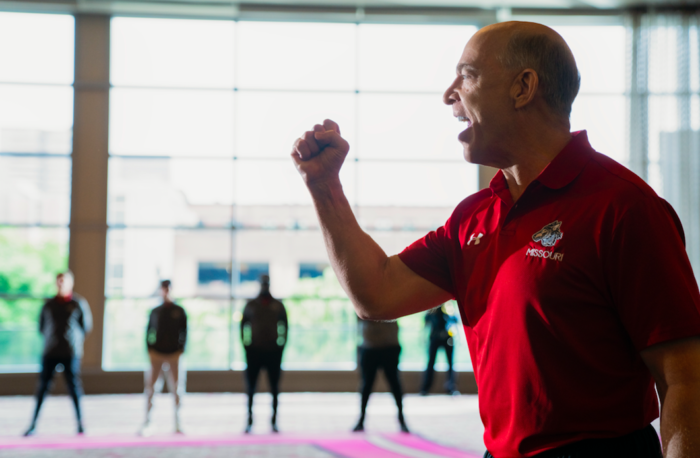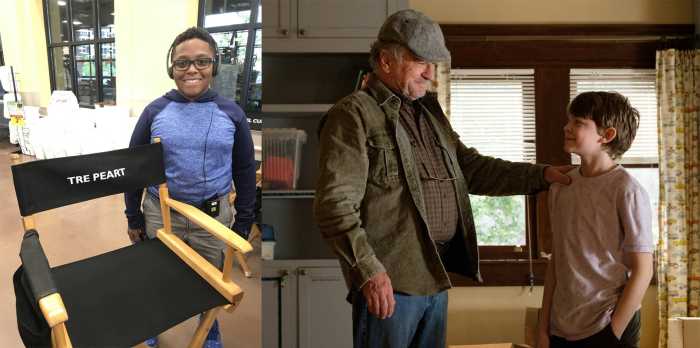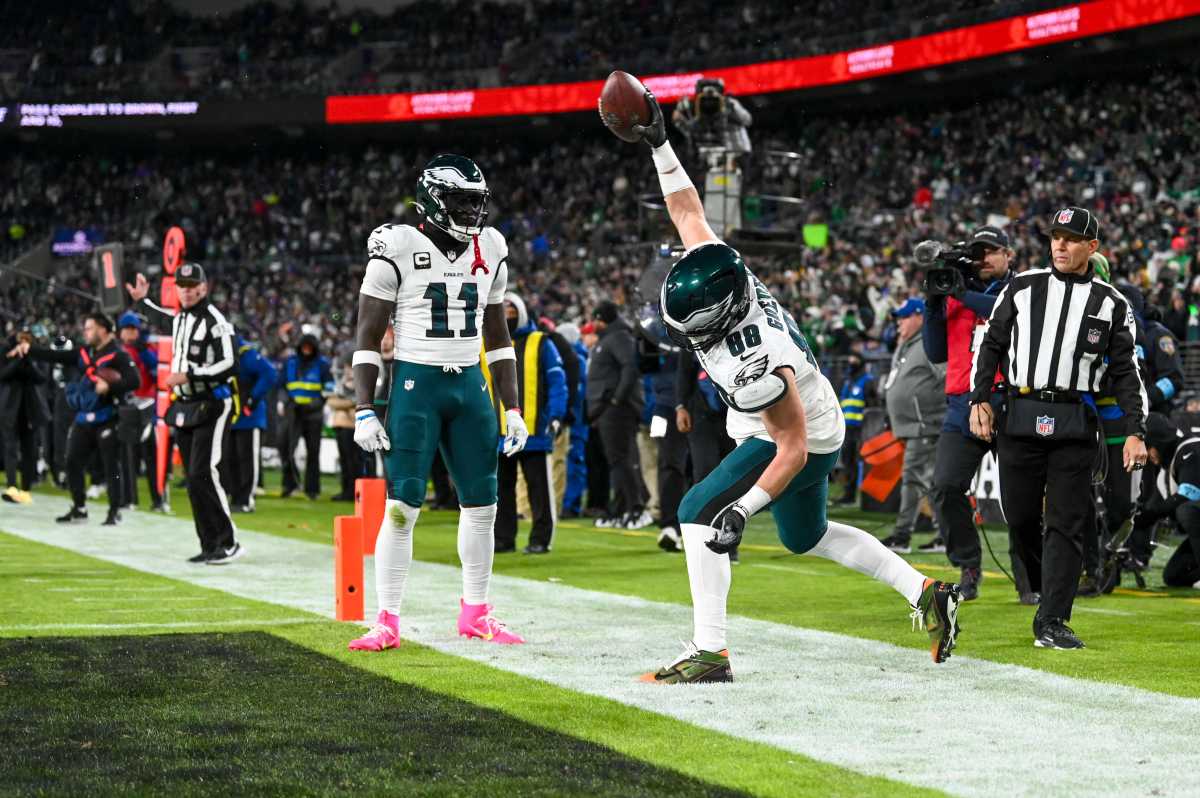In director Ric Roman Waugh’s latest film, audience members are thrust into the beginning of a battle, but not one that takes place on field. In fact, it’s all about keeping off a field that ignites this fight.
In “National Champions,” a star quarterback LeMarcus James (Stephan James, “Homecoming”) destined for the pros decides to boycott the college championship game just hours before kickoff. In the world of collegiate athletics, these games make serious money and James is at the center of that pull for spectators — so when he breaks the story that he’s not going to be playing, essentially the entire coaching staff and NCAA are thrown for a loop.
The incentive of the boycott comes from the lack of fair compensation, equality, and respect that student athletes receive. James along with his best friend Emmett (Alex Ludwig) ask the question of: When coaches and suits are making millions, why should players get snuffed? Who looks out for the prized roster of quarterbacks, defensive ends and beyond when they are done suiting up for games?
Based on the play of the same name by Adam Mervis, who also adapted “National Champions” for the screen, the story is highly character driven. Along with an all-star cast performance, there are many compelling dialogues and monologues. Waugh’s direction of keeping the action in board rooms and hotel rooms (we rarely are outside in this one), it’s really the talent of James, Alexander Ludwig, J.K. Simmons, Lil Rel Howery, and the list goes on that really drives this story home.
Actor Stephan James sat down to discuss more about his role, one that he says is a huge responsibility in and of itself.
What was your interest in wanting to sign on with this role?
When I first read the script, it was so unique to me. We’re telling a story about sports and about brotherhood and it had nothing to do with anything on the field — that to me was just really, really compelling. To just understand the character that LeMarcus James was, this incredibly gifted football player with an incredible platform and one that he wants to use to affect the sport forever, I think it’s an admirable thing. But it’s also a scary thing.
Who is LeMarcus James to you and what is he fighting for?
LeMarcus is a young man who didn’t come from much. [LeMarcus] and his brother found football as their escape growing up, and they took different paths. LeMarcus grew up to be this successful and very revered college football athlete and the best in the sport, so, he got to a point where he realized this is so much bigger than football — it’s life. I think that he wanted to use his position to be able to speak to something greater than football and to be able to talk about life after football and what that really means. I think that’s an incredibly powerful statement for a young man to make.
How familiar are you with the play this film is based on?
I didn’t know much about the play. I [do] know Adam Mervis really well who wrote this script and who adapted it into a film. He certainly took different bits and pieces of it. But I think ultimately, the film feels like a little bit of a different thing and a more holistic sort of story.
When we are introduced to LeMarcus, it seems like a lot has already happened… Did you discuss the backstory of LeMarcus and what led him to this stance and fight with Ric or Adam?
We definitely had discussions about it — the root of it all was family. I think that LeMarcus had been dealing with a lot. Oftentimes when you’re in this industry where people want you to do well, they’re not really too concerned with your wellbeing if that makes sense. So, it was really important for LeMarcus to be this star quarterback to go out and play these games and show up every Monday, every Sunday and put his heart, his blood, sweat and tears on the field. But, who is checking for him and what was happening in his life? I think ultimately, LeMarcus had to educate himself and had to understand the facts. Then once he was able to understand the facts, he was able to speak about these things with an informed lens and speak about it with conviction in hopes of creating and generating real positive change. The fact is, these athletes are so powerful: It’s athletes like LeMarcus who generate tens of millions of dollars for these schools. So, when you are able to see the bottom line and realize how much you affect it, there’s power in that. LeMarcus stepped into, I believe, his true destiny by fighting for something that was bigger than himself.

Did you look into other research and cases surrounding this whole controversy?
Of course, [and] you see it every day. We’ve made slight improvements with some athletes being able to reap some benefits off of merchandising and things like that, but we haven’t really scratched the surface of what’s appropriate. You see these young players fill up stadiums with 60,000 people weekly. You’ve got to think about who is benefitting from these things? Who is reaping the reward of the hard labor of these young athletes? I think when you start to really understand that, you can start asking questions and then a conversation can be started about how we better ourselves. You see it all the time in the NFL and the NCAA. You have these star athletes and they’re not making much, they’re still living at home with their parents, trekking to university every day, yet their coaches are worth $120 million. If that doesn’t raise some red flags, I don’t know what does.
“National Champions” is definitely very character-driven, dialogue-heavy film… For you as an actor where most of the big scenes are monologues that drive the emotion, how do you prepare?
It’s certainly a challenge in and of itself just realizing how much you carry a film. Being the lead of a film is one thing, there’s pressure in that. But being a lead in a film like this where so much of the information and facts and so many of the important things happen to be relayed through LaMarcus… It was really important for me to be educated and to be informed like how LeMarcus had to educate and inform. [He had to] understand these numbers and speak with them in conviction and to have poise, to be able to inspire and to uplift. It had shades to me of Martin Luther King and Malcolm X in terms of being able to rally the troops and to really be a true leader to that end. Those were all of the dynamics I was playing in while going through this process.
Overall, what do you hope audiences take away from National Champions?
I wouldn’t say I have a clear hope for anyone — I’m just an artist, I deliver art and it’s open to interpretation. I think this film does a really good job of providing you with all of the perspectives for you to be able to make your own decision and come to your own conclusions. But, ultimately, I hope this helps add to the conversation, that it raises tougher questions, because again there is so much to be discussed and to just have a film that can be part of that conversation… That’s a great thing for me.

“National Champions” releases in theaters Dec. 10th.
































